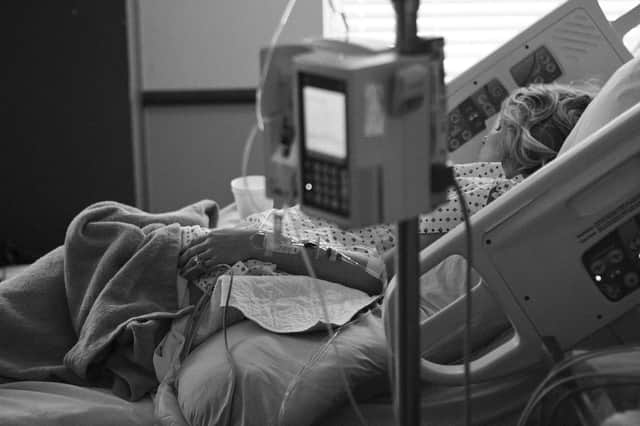LEGAL EAGLE: Talking through resuscitating a patient when in hospital


Contrary to some populist drama’s your chances of being resuscitated unscathed are quite low. The chances of the attempted resuscitation causing you some harm, albeit perhaps limited to for example fractured ribs, are quite high.
You can understand in current circumstances why such discussions may have become more frequent. However, it transpires, worryingly, that in fact with certain groups of the population these discussions may not have increased during the pandemic.
Advertisement
Hide AdAdvertisement
Hide AdOn the 3 rd December, the Care Quality Commission published an interim report of a review into the application of such decisions during the pandemic. It was noted that guidance intended to help clinicians assess frailty when considering the appropriateness of critical care had been initially interpreted as the sole basis for a DNACPR decision in some cases.
This was apparently quickly acknowledged and changed. The CQC did hear some evidence that early in the pandemic patients and their relatives received DNACPR decisions that were not based on their wishes and needs and even without their knowledge or consent. There was some concern that the issue may have affected some groups more than others e.g. those with learning disabilities and the elderly. Further research is being carried out in seven areas and a final report is due early next year. There is one concern that the report highlighted that cannot wait for the final review.
Apparently, some of these inappropriate DNACPR orders may remain in place. The CQC reminded care providers to ensure that decisions had been made appropriately, in discussion with the patient and in line with legal requirements. Although it may not be at the front of most relative’s minds when their loved one is admitted to hospital in current circumstances it would appear that regrettably they would be well advised to ensure that appropriate discussions have taken place with their family member or themselves before a DNACPR order is signed. Furthermore for anyone who has been fortunate to be admitted and discharged they, or their family, may be wise to check that any order that may have been agreed is appropriately reviewed and their current wishes made clear.